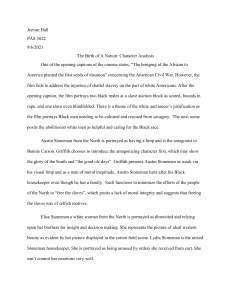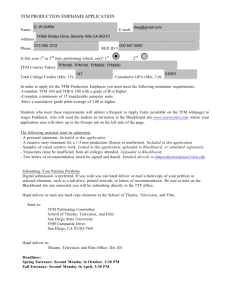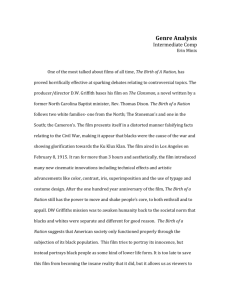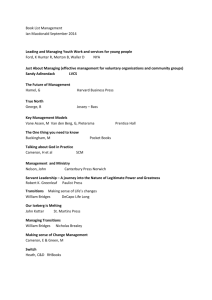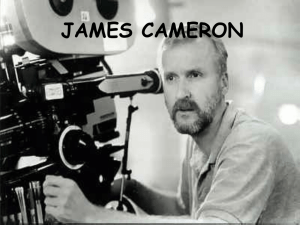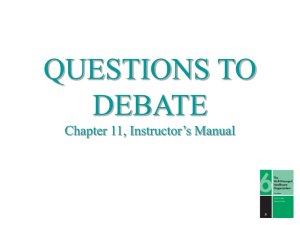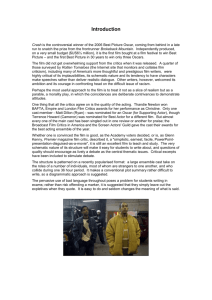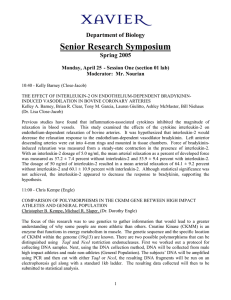Film Studies 270 - Virginia Bonner
advertisement
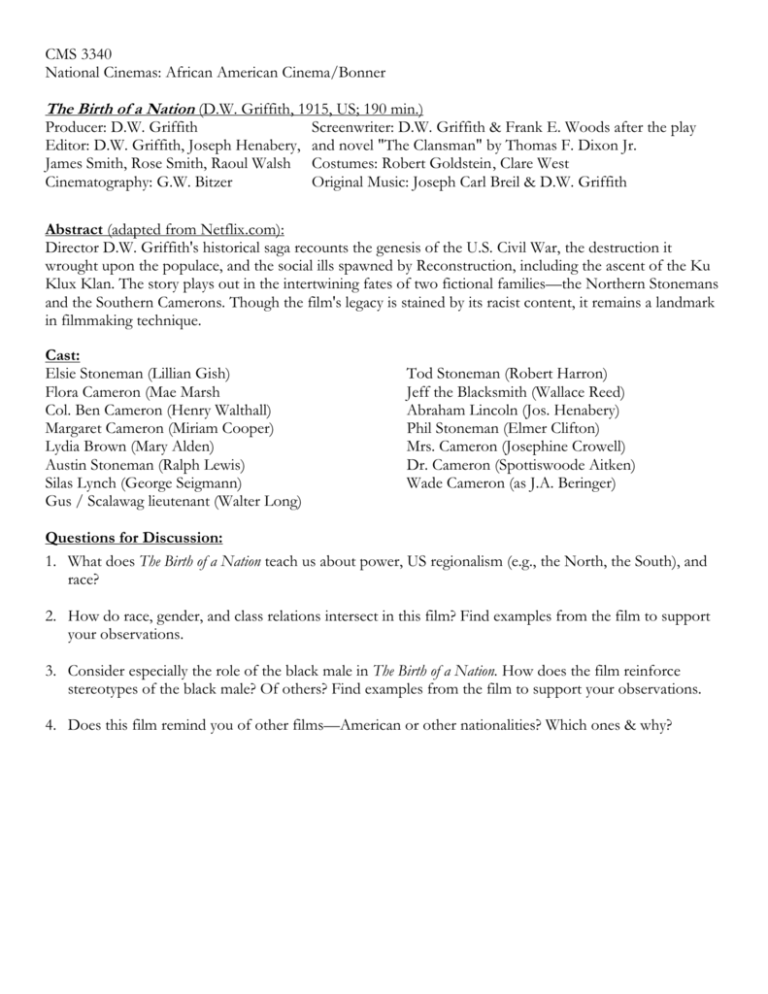
CMS 3340 National Cinemas: African American Cinema/Bonner The Birth of a Nation (D.W. Griffith, 1915, US; 190 min.) Producer: D.W. Griffith Editor: D.W. Griffith, Joseph Henabery, James Smith, Rose Smith, Raoul Walsh Cinematography: G.W. Bitzer Screenwriter: D.W. Griffith & Frank E. Woods after the play and novel "The Clansman" by Thomas F. Dixon Jr. Costumes: Robert Goldstein , Clare West Original Music: Joseph Carl Breil & D.W. Griffith Abstract (adapted from Netflix.com): Director D.W. Griffith's historical saga recounts the genesis of the U.S. Civil War, the destruction it wrought upon the populace, and the social ills spawned by Reconstruction, including the ascent of the Ku Klux Klan. The story plays out in the intertwining fates of two fictional families—the Northern Stonemans and the Southern Camerons. Though the film's legacy is stained by its racist content, it remains a landmark in filmmaking technique. Cast: Elsie Stoneman (Lillian Gish) Flora Cameron (Mae Marsh Col. Ben Cameron (Henry Walthall) Margaret Cameron (Miriam Cooper) Lydia Brown (Mary Alden) Austin Stoneman (Ralph Lewis) Silas Lynch (George Seigmann) Gus / Scalawag lieutenant (Walter Long) Tod Stoneman (Robert Harron) Jeff the Blacksmith (Wallace Reed) Abraham Lincoln (Jos. Henabery) Phil Stoneman (Elmer Clifton) Mrs. Cameron (Josephine Crowell) Dr. Cameron (Spottiswoode Aitken) Wade Cameron (as J.A. Beringer) Questions for Discussion: 1. What does The Birth of a Nation teach us about power, US regionalism (e.g., the North, the South), and race? 2. How do race, gender, and class relations intersect in this film? Find examples from the film to support your observations. 3. Consider especially the role of the black male in The Birth of a Nation. How does the film reinforce stereotypes of the black male? Of others? Find examples from the film to support your observations. 4. Does this film remind you of other films—American or other nationalities? Which ones & why?
